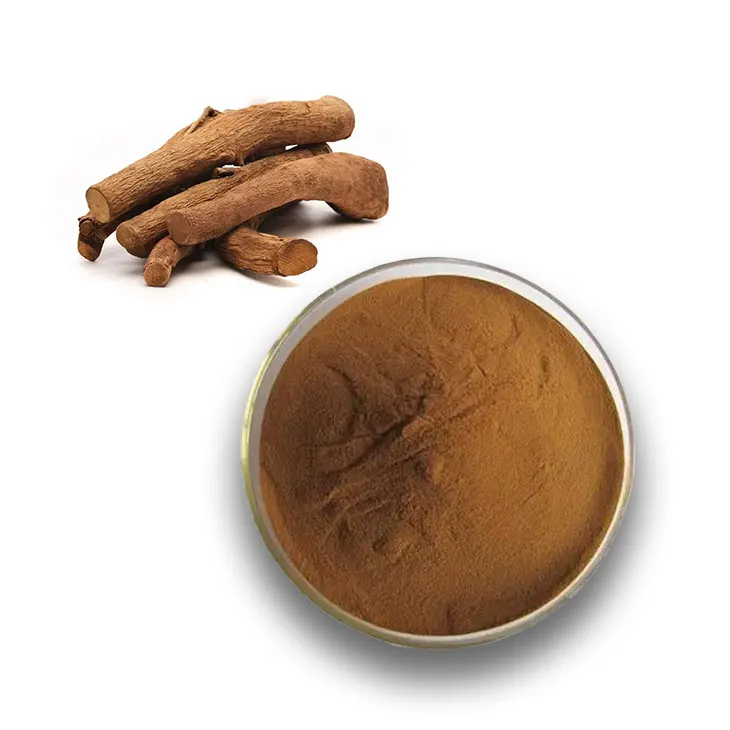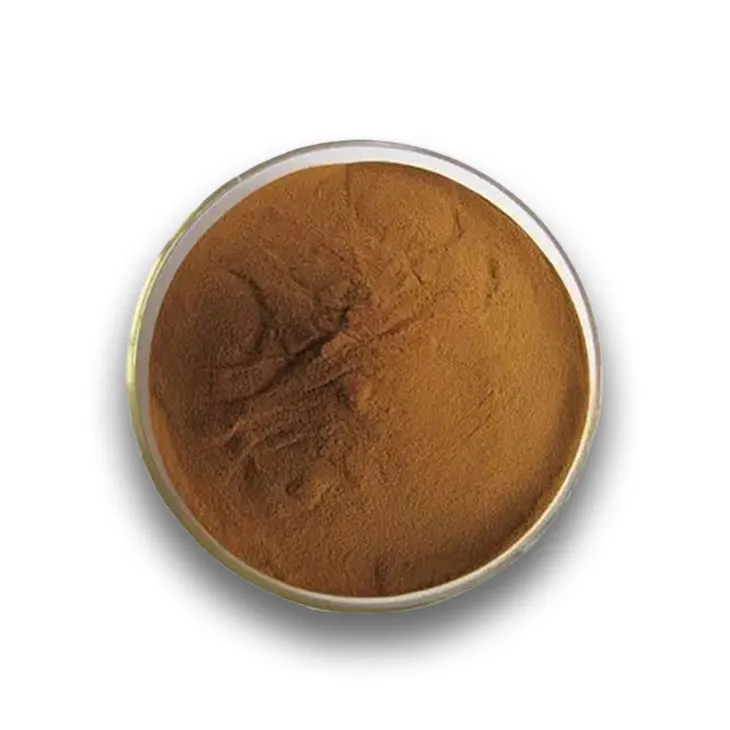- 0086-571-85302990
- sales@greenskybio.com
Is Tongkat Ali extract beneficial for diabetes? Are these all safe and suitable for diabetic patients?
2024-11-13

1. Introduction
Diabetes has emerged as a significant global health issue, affecting millions of people worldwide. The search for natural remedies to manage diabetes has gained momentum. Eurycoma longifolia, commonly known as Tongkat Ali, is a plant native to Southeast Asia that has been used in traditional medicine for various purposes. In recent years, there has been growing interest in exploring whether Tongkat Ali Extract could potentially offer benefits for diabetes patients. This article aims to comprehensively analyze the available scientific evidence regarding its impact on diabetes, its safety, and its suitability for those with diabetes.

2. Understanding Diabetes
2.1 Types of Diabetes
There are two main types of diabetes: type 1 diabetes and type 2 diabetes. Type 1 diabetes is an autoimmune disorder where the body's immune system attacks and destroys the insulin - producing beta cells in the pancreas. As a result, patients with type 1 diabetes require exogenous insulin for survival.Type 2 diabetes, on the other hand, is more complex and often associated with lifestyle factors such as obesity, physical inactivity, and poor diet. In type 2 diabetes, the body either does not produce enough insulin or becomes resistant to the effects of insulin.
2.2 Current Management of Diabetes
The management of diabetes typically involves a combination of lifestyle modifications, including diet control, regular exercise, and pharmacological interventions. Medications such as metformin, sulfonylureas, and insulin are commonly prescribed to help regulate blood sugar levels. However, these medications may have side effects, and some patients may be interested in exploring complementary or alternative therapies like Tongkat Ali Extract.
3. Tongkat Ali Extract: An Overview
3.1 Botanical Characteristics
Tongkat Ali is a small tree that belongs to the Simaroubaceae family. The root of the plant is the main part used for extraction. It contains a variety of bioactive compounds, including alkaloids, quassinoids, and flavonoids.3.2 Traditional Uses
In traditional medicine, Tongkat Ali has been used for its purported aphrodisiac properties, as well as for enhancing energy, improving physical performance, and treating various ailments such as malaria and fever. However, its potential role in diabetes management is a relatively new area of research.
4. Scientific Research on Tongkat Ali Extract and Diabetes
4.1 Impact on Blood Sugar Regulation
Several in - vitro and in - vivo studies have investigated the effect of Tongkat Ali extract on blood sugar levels. Some pre - clinical studies have suggested that certain components of Tongkat Ali may have hypoglycemic effects. For example, quassinoids present in the extract may enhance insulin sensitivity in cells, which could potentially lead to better blood sugar control.However, it is important to note that the results from these studies are not always consistent. While some experiments have shown promising results, others have failed to demonstrate a significant impact on blood glucose regulation. More large - scale, well - designed clinical trials are needed to draw more definitive conclusions.
4.2 Anti - inflammatory and Antioxidant Properties
Inflammation and oxidative stress play important roles in the development and progression of diabetes. Tongkat Ali extract has been shown to possess anti - inflammatory and antioxidant properties. By reducing inflammation and oxidative stress, it may potentially have a beneficial impact on diabetes - related complications. For instance, the antioxidant compounds in the extract may help protect pancreatic beta cells from oxidative damage, which could be beneficial for insulin production.4.3 Effects on Lipid Metabolism
Abnormal lipid metabolism is often associated with diabetes. Some research has indicated that Tongkat Ali extract may influence lipid metabolism. It may help reduce triglyceride levels and increase high - density lipoprotein (HDL) cholesterol, which is considered "good" cholesterol. Improving lipid profiles could potentially contribute to better overall diabetes management, as dyslipidemia is a common comorbidity in diabetic patients.5. Safety of Tongkat Ali Extract for Diabetic Patients
5.1 Potential Side Effects
While Tongkat Ali extract is generally considered safe when consumed in moderation, there are some potential side effects that need to be considered, especially for diabetic patients. Some individuals may experience gastrointestinal discomfort such as nausea, diarrhea, or abdominal pain. In addition, high doses of Tongkat Ali extract may have hormonal effects, as it has been reported to affect testosterone levels in some cases. Since hormonal imbalances can potentially impact diabetes management, this aspect requires further investigation.5.2 Interactions with Diabetes Medications
One of the major concerns regarding the use of Tongkat Ali extract by diabetic patients is its potential interactions with existing diabetes medications. For example, if Tongkat Ali extract has hypoglycemic effects, combining it with medications that also lower blood sugar, such as metformin or sulfonylureas, could potentially lead to hypoglycemia, a dangerous condition characterized by abnormally low blood sugar levels. Therefore, it is crucial for diabetic patients who are considering using Tongkat Ali extract to consult their healthcare providers to avoid any potential adverse drug interactions.6. Conclusion
In conclusion, Tongkat Ali extract shows some potential benefits for diabetes in terms of blood sugar regulation, anti - inflammatory and antioxidant properties, and effects on lipid metabolism. However, the current scientific evidence is not conclusive, and more research, especially large - scale clinical trials, is needed. Regarding its safety for diabetic patients, while it may be generally safe in moderation, there are potential side effects and concerns about interactions with diabetes medications. Diabetic patients should not start using Tongkat Ali extract without first consulting their healthcare providers. Overall, the exploration of Tongkat Ali extract as a potential natural remedy for diabetes is an interesting area of research, but caution should be exercised until more definitive evidence is available.
FAQ:
Q1: What is Tongkat Ali extract?
Tongkat Ali extract is derived from the Eurycoma longifolia plant. It has been traditionally used in some cultures for various health purposes, such as enhancing male vitality. However, its potential benefits in relation to diabetes are now being explored.
Q2: How might Tongkat Ali extract affect blood sugar regulation in diabetic patients?
Some studies suggest that Tongkat Ali extract may have certain compounds that could potentially influence blood sugar levels. It might enhance insulin sensitivity or affect glucose metabolism in the body. However, more research is needed to fully understand the mechanisms and the extent of its impact on blood sugar regulation.
Q3: Are there any side effects of Tongkat Ali extract for diabetic patients?
Tongkat Ali extract may cause some side effects. In some cases, it could lead to increased heart rate, restlessness, or digestive issues. For diabetic patients, these side effects could potentially interact with their existing health conditions or medications. It is important to note that individual responses may vary, and more research is required to determine the specific side - effect profile in diabetic individuals.
Q4: Can Tongkat Ali extract interact with diabetes medications?
There is a possibility of interaction between Tongkat Ali extract and diabetes medications. It could either enhance or reduce the effectiveness of the drugs. For example, if it affects the way the body metabolizes medications, it might lead to unexpected changes in blood sugar control. Diabetic patients should always consult their healthcare providers before using Tongkat Ali extract to avoid any potential harmful interactions.
Q5: Is it safe for diabetic patients to use Tongkat Ali extract?
Given the potential side effects and possible interactions with medications, it cannot be simply said that it is safe for diabetic patients to use Tongkat Ali extract. While some components of it may show promise in relation to diabetes, the overall safety has not been comprehensively established. Diabetic patients need to consider their individual health status, including any other medical conditions and medications they are taking, and seek professional medical advice.
Related literature
- The Potential of Eurycoma longifolia (Tongkat Ali) in Metabolic Disorders"
- "Tongkat Ali Extract: A Review of its Effects on Health and Disease"
- "Eurycoma longifolia and Diabetes: Current Research and Future Perspectives"
- ▶ Hesperidin
- ▶ Citrus Bioflavonoids
- ▶ Plant Extract
- ▶ lycopene
- ▶ Diosmin
- ▶ Grape seed extract
- ▶ Sea buckthorn Juice Powder
- ▶ Fruit Juice Powder
- ▶ Hops Extract
- ▶ Artichoke Extract
- ▶ Mushroom extract
- ▶ Astaxanthin
- ▶ Green Tea Extract
- ▶ Curcumin
- ▶ Horse Chestnut Extract
- ▶ Other Product
- ▶ Boswellia Serrata Extract
- ▶ Resveratrol
- ▶ Marigold Extract
- ▶ Grape Leaf Extract
- ▶ New Product
- ▶ Aminolevulinic acid
- ▶ Cranberry Extract
- ▶ Red Yeast Rice
- ▶ Red Wine Extract
-
Cat Claw Extract
2024-11-13
-
Baicalin
2024-11-13
-
melatonin extract
2024-11-13
-
Peppermint Extract Powder
2024-11-13
-
Purple Sweet Potato Extract
2024-11-13
-
Ginseng Root Extract
2024-11-13
-
Almond Extract Powder
2024-11-13
-
Gynostemma pentaphyllum extract
2024-11-13
-
Marigold Extract
2024-11-13
-
Bamboo Leaf extract
2024-11-13





















